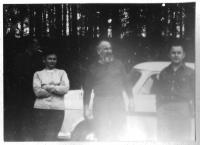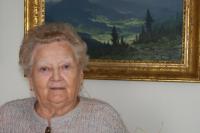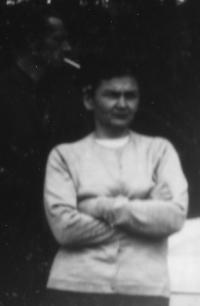Scouting has truly formed me into what I am.

Stáhnout obrázek
Eva Polanská, née Čápová, was born on December 22, 1933, in Hlinsko. Her father worked as a train conductor. She grew up with her older sister. After the Second World War she joined the local scout center. After she graduated, she started to work as a teacher. During the second renewal of the Junák in the years 1968-1970, she held the position of an educational rapporteur in a Girl Scout troop. After the scout center was closed down, she became engaged in the Sokol. After 1989, Eva Polanská participated in the renewal of the scout center and she became one of the main leaders of the first post-revolutionary camp in Šiškovice (1991). She left the Junák in the 1990s. She lives in her native town of Hlinsko.


